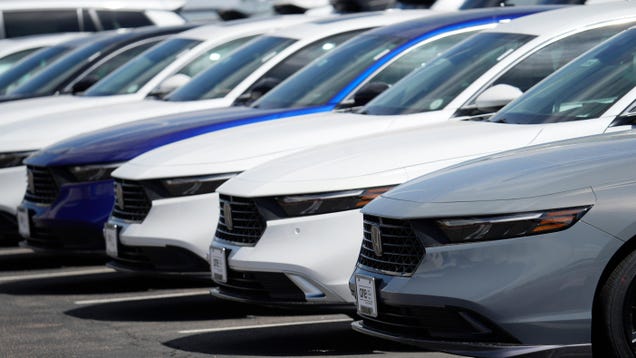Florida Governor Ron DeSantis Signs Law Blocking Direct-to-Consumer Auto Sales
As a car dealer in Florida, you can breathe a sigh of relief. Governor Ron DeSantis has just signed a law that blocks most automakers from using a direct-to-consumer sales model. This means that your existence as an unnecessary middleman has been preserved yet again. But what does this mean for consumers hoping for a more streamlined car-buying process? Let’s take a closer look.
What is Direct-to-Consumer Auto Sales?
Direct-to-consumer auto sales is a model where automakers sell their vehicles directly to consumers, bypassing traditional dealerships. This model has been gaining popularity in recent years, with Tesla being the most well-known example. By selling directly to consumers, automakers can cut out the middleman and potentially offer lower prices.
Why Did Florida Block Direct-to-Consumer Auto Sales?
The new law in Florida blocks most automakers from using a direct-to-consumer sales model. The reason behind this is to protect the franchise system that has been in place for decades. The franchise system requires automakers to sell their vehicles through licensed dealerships, which are independently owned and operated. These dealerships provide jobs and contribute to the local economy, and they also provide a level of consumer protection.
The franchise system also ensures that automakers are not competing against their own dealerships. If automakers were allowed to sell directly to consumers, they could potentially undercut their own dealerships and put them out of business. This would have a ripple effect on the local economy and could result in job losses.
What Does This Mean for Consumers?
For consumers, the new law means that they will continue to buy cars through traditional dealerships. While this may not be as convenient as buying directly from an automaker, it does offer some benefits. Dealerships provide a physical location where consumers can test drive cars and get advice from salespeople. They also offer financing options and warranties, which can provide peace of mind.
However, some consumers may be disappointed that they cannot buy directly from automakers. This model has been gaining popularity in recent years, and many consumers appreciate the transparency and simplicity of buying directly from the source. It also allows them to avoid the haggling and pressure that can come with buying from a dealership.
What About Tesla?
While the new law blocks most automakers from using a direct-to-consumer sales model, it does not apply to Tesla. This is because Tesla already has a license to sell its vehicles in Florida, and the new law does not retroactively revoke existing licenses. However, if Tesla were to apply for a new license in the future, it would be subject to the same restrictions as other automakers.
What’s Next?
The new law in Florida is just the latest in a series of battles between automakers and dealerships over the direct-to-consumer sales model. Similar laws have been passed in other states, including Michigan and Texas. However, some states have taken a different approach and have allowed automakers to sell directly to consumers.
As technology continues to evolve and consumers demand more transparency and convenience, it’s likely that the debate over direct-to-consumer auto sales will continue. For now, car dealers in Florida can rest easy knowing that their franchise system is protected. And consumers will continue to buy cars through traditional dealerships, at least for the time being.
